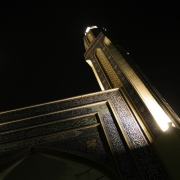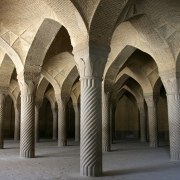Pleasures—Sensual and Spiritual: A Chapter from Nāṣir-i Khusraw’s Pilgrims’ Provision By Shafique N . Virani
This article offers a translation and analysis of Nāṣir-i Khusraw’s seminal discourse on pleasure from his philosophical treatise The Pilgrims’ Provision (Zād al-musāfirīn), illuminating the intricate interplay between sensual and intellectual delights in Islamic thought. It situates Nāṣir-i Khusraw within the broader intellectual tradition, highlighting his critique of Muḥammad b. Zakariyyāʾ al-Rāzī’s Epicurean-influenced conception of pleasure as mere relief from pain. Through rigorous refutation, Nāṣir-i Khusraw advances a framework wherein pleasure is a metaphysical phenomenon rooted in the soul’s ascent toward perfection and its reunion with the Universal Intellect. The chapter explores the gradations of pleasure across the natural, vegetative, sentient, and rational realms, culminating in the infinite joy of intellectual realization. Drawing on symbolic interpretation of the Quran, Nāṣir-i Khusraw redefines paradise not as a realm of corporeal indulgence, but as consummate knowledge, and hell as consummate ignorance. The translation is enriched by historical context, philosophical commentary, and poetic excerpts, offering readers a profound meditation on the nature of human fulfillment and the enduring relevance of spiritual pleasure in an age of material excess.









